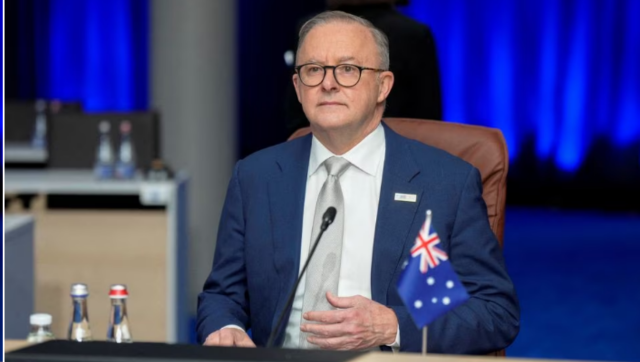Australian federal MPs, including the Prime Minister and members of the cabinet, have overwhelmingly voted to advocate for the return of Julian Assange, the founder of WikiLeaks, to Australia, urging both the US and the UK to allow it. According to The Guardian, the passage of the motion, with 86 votes in favor and 42 against, was celebrated by independent MP Andrew Wilkie as “an unprecedented show of political support for Assange by the Australian parliament”. While opposition leader Peter Dutton, along with colleagues from the Coalition, opposed the motion, Tasmanian MP Bridget Archer broke ranks to support the pro-Assange stance, added the report. The timing of the vote aligns with Attorney General Mark Dreyfus’s acknowledgment that the Assange issue was discussed during his recent meeting with his US counterpart, Merrick Garland, in Washington DC. “This was a private discussion; however this government’s position on Mr Assange is very clear, and has not changed,” Guardian Australia quoted Dreyfus as saying. “It is time this matter is brought to an end,” Dreyfus added. Assange continues to be held at Belmarsh prison in London while contesting a US extradition attempt, which seeks to bring him from the UK to face charges, including violations of the Espionage Act. The UK high court is scheduled to conduct a two-day hearing on this matter next week. The charges stem from the release of numerous leaked documents related to the Afghanistan and Iraq wars, as well as diplomatic cables, between 2010 and 2011. On Wednesday, Wilkie effectively motioned to halt parliamentary standing orders for a debate on the issue, a motion supported by government backbencher Josh Wilson. Anthony Albanese’s government has repeatedly said that “enough is enough” and that it is time for the Assange matter to be “brought to a conclusion”. But the motion on Wednesday removed the ambiguity about what that conclusion should entail: allowing him back to Australia. The parliamentary motion specifically underlined “the importance of the UK and USA bringing the matter to a close so that Mr Assange can return home to his family in Australia”. During the debate, Wilkie implored fellow MPs to support the motion because it was “time for all of us to take a stand”. Wilkie said that if Assange lost his final UK appeal next week, “he could be on a plane to the United States within hours”. “We’ve just about run out of time to save Julian Assange,” Guardian quoted Wilkie as saying in parliament. Wilson, the Labor MP, told parliament that the same material at the heart of the charges against Assange had been “published without legal consequence by media organisations in the United States”. “It is significant that both the prime minister and the leader of the opposition have been clear in saying the matter should come to an end,” Wilson said. Despite Dutton’s past comments on the matter, he and fellow Coalition frontbenchers ultimately voted against the motion, which also included the statement that the material “revealed shocking evidence of misconduct by the USA”. Some Coalition MPs who have previously backed calls for Assange’s release, including Barnaby Joyce, were not present for the vote. Eight Coalition MPs who were present for a separate vote immediately beforehand did not vote on the Assange motion. The Greens and many crossbenchers supported the motion. The US secretary of state, Antony Blinken, has previously pushed back at the Australian government’s complaints that the pursuit of Assange had dragged on too long. After talks in Brisbane in July, Blinken said it was “very important” for “our friends” in Australia to understand the US concerns about Assange’s “alleged role in one of the largest compromises of classified information in the history of our country”. With inputs from agencies
Australian federal MPs, including the Prime Minister and members of the cabinet, have overwhelmingly voted to advocate for the return of Julian Assange, the founder of WikiLeaks, to Australia, urging both the US and the UK to allow it
Advertisement
End of Article


)

)
)
)
)
)
)
)
)



